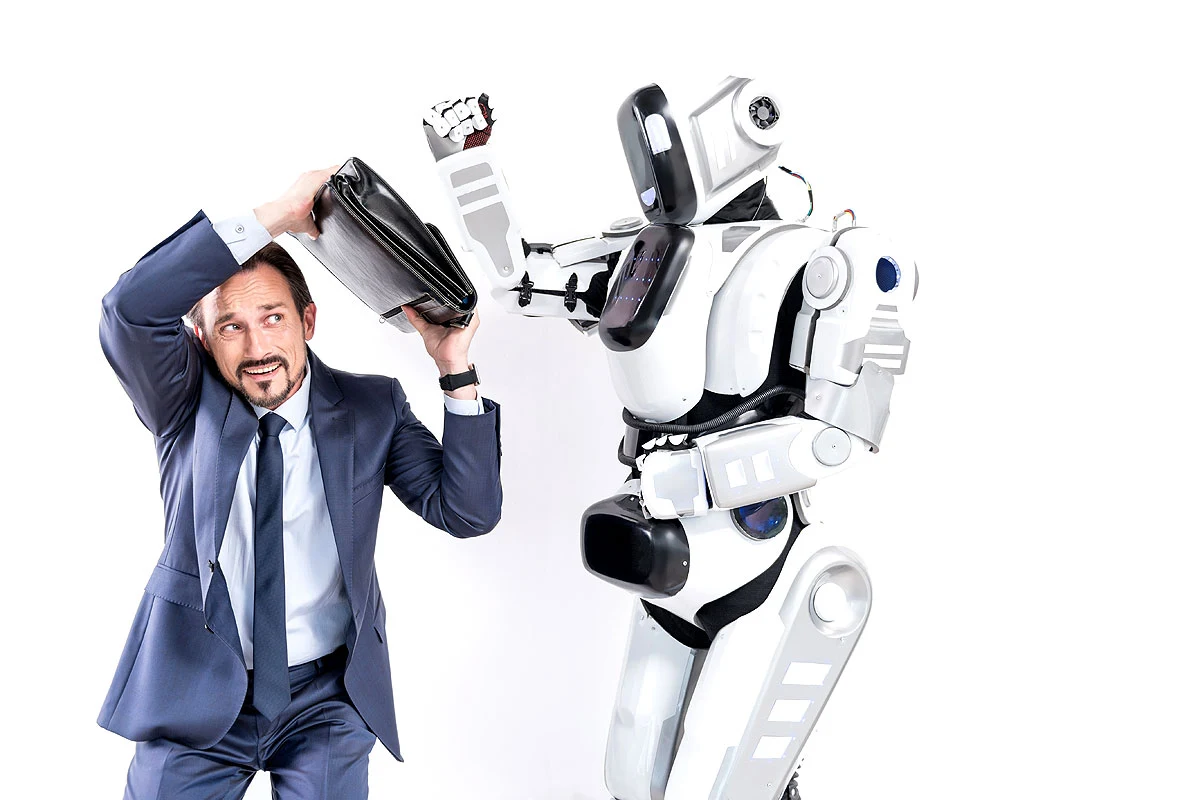AI has brought about significant changes in various industries, transforming the way we work and live. Enterprises are enthusiastically embr...
 |
| AI has brought about significant changes in various industries, transforming the way we work and live. |
The Shift in Job Market Dynamics
While the advent of AI undeniably brings forth a myriad of advantages and prospects, it concurrently provokes concerns surrounding the potential displacement of human employment opportunities. The job cuts increased by 20% in last April, which saw 66,995 positions axed according to the report.
With talks of a looming recession, it’s possible that companies really are beginning to pare down the human employees in their workforce in favor of a bucket of AI bolts in order to save some cash and impress shareholders.
“Consumer confidence is down to a six-month low and job openings are flattening. Companies appear to be putting the brakes on hiring in anticipation of a slowdown,” said Andrew Challenger, senior vice president the company. IBM CEO Arvind Krishna said last month that the company is planning to pause or slowdown hiring in the coming years for roles in which AI could replace humans.
The slowdown or freeze job hiring would effect back-office positions and departments such as HR—these non-customer facing positions makeup around 26,000 positions in IBM’s workforce. Tim Davidson, IBM communications officer, told the media last month that the company is “being deliberate and thoughtful in our hiring with a focus on revenue-generating roles.”
Similarly, last month, The National Eating Disorder Association shut down it’s telephone helpline in favor of an AI chatbot named Tessa, firing its small staff of humans. Prior to the switch, staff successfully unionized after feeling understaffed and overworked while not receiving the support they needed while working with an at-risk population.
While the swap to AI was a blow to the human workers, it wasn’t smooth sailing, and NEDA pulled the Tessa chatbot last week after the nonprofit said on Instagram that it may have given harmful information to those seeking comfort.
What organizations like IBM and NEDA are purposefully ignoring is that AI could serve a supplement to labor by making menial tasks easier or even non-existent, thereby optimizing the performance of both that artificial intelligence and the human worker.
New research from Stanford University and Massachusetts Institute of Technology has found that 14% of employees that used ChatGPT in their workflow saw an increase in productivity. The integration of AI technologies across industries has led to increased automation and efficiency, allowing businesses to streamline processes and reduce costs.
Factors Contributing to Job Displacement
Several factors contribute to job displacement caused by AI. Firstly, advancements in machine learning and natural language processing have enabled AI systems to perform tasks that traditionally required human intervention. This includes tasks like data entry, customer service, and even certain aspects of creative work. As AI systems become more capable and sophisticated, they increasingly replace human workers in these roles.
Secondly, the increased adoption of robotics and automation technologies in manufacturing and logistics sectors has significantly impacted jobs that involve repetitive tasks. Robots are increasingly taking over assembly line jobs, material handling, and transportation, leading to reduced demand for human labor.
 |
| Jobs cuts to AI highlights the ongoing transformation in the job market. |
Navigating the new Changing
The displacement of jobs due to AI is a reality, and it is essential to initiate some proactive measures to tackling the new changes posed by AI. Here are a few key strategies:
- Upskilling and Reskilling: Investing in education and training programs that equip individuals with the skills required for emerging roles can help mitigate job losses. Encouraging workers to develop expertise in areas where human capabilities complement AI, such as creativity, emotional intelligence, and complex problem-solving, can create new opportunities.
- Promoting Entrepreneurship and Innovation: Encouraging entrepreneurship and supporting innovative startups can foster job creation. By empowering individuals to create their ventures and harness the potential of AI, new industries and opportunities can emerge.
- Social Safety Nets and Job Transition Support: Governments and organizations should prioritize the development of robust social safety nets and provide support for workers transitioning from displaced roles to new ones. Programs that offer job placement assistance, financial aid, and retraining initiatives can help individuals adapt to the evolving job market.
- Ethical AI Adoption: Emphasizing the ethical use of AI and ensuring transparency and accountability in AI systems can build trust and acceptance. It is crucial to establish guidelines and regulations that address concerns related to bias, privacy, and algorithmic decision-making.
The loss of jobs to AI in many sectors highlights the ongoing transformation in the job market. While AI offers immense potential and benefits, it is vital to navigate this evolving landscape responsibly.
By focusing on upskilling, promoting entrepreneurship, providing support during job transitions, and embracing ethical AI adoption, we can strive for a future where AI and human workers can coexist together, creating a more inclusive and prosperous society.







